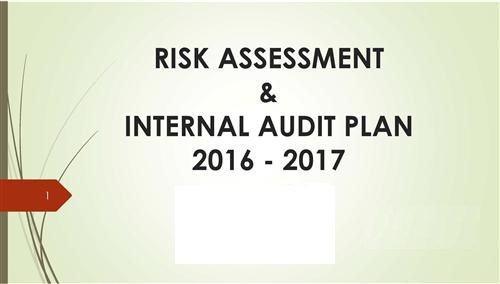The Cutting Edge of Medical Technology Content, Community & Collaboration
A n internal audit program of an organization’s Quality Management Systems is a core requirement from both the ISO and the FDA. At its barest, an internal audit system can be understood to be an assessment or inspection of an organization’s Quality System. Audits are a very beneficial and positive tool for continually ensuring that an organization’s internal management systems are up to the mark and keep meeting regulatory requirements on a consistent basis.
n internal audit program of an organization’s Quality Management Systems is a core requirement from both the ISO and the FDA. At its barest, an internal audit system can be understood to be an assessment or inspection of an organization’s Quality System. Audits are a very beneficial and positive tool for continually ensuring that an organization’s internal management systems are up to the mark and keep meeting regulatory requirements on a consistent basis.
An internal audit program is the most effective and useful tool in helping an organization discover its loopholes and deficiencies in the Quality System, which is absolutely essential to help it pass regulatory hurdles. The purposes of an internal audit, as set out by ISO 9001, which describes Quality Management Systems audits, are to ensure that:
- The Quality Systems of the organization comply with the requirements of ISO 9001 and its latest versions
- They show compliance with the requirements of other regulatory bodies such as the FDA
- They comply with the quality requirements the organization has
- The organization makes effective implementation and maintenance of the QMS.
ISO 9001 does not require the internal audit procedure to be fully documented. An organization has to only, to use the ISO’s own words, “maintain an audit program” and retain the documents relating to the audit and its results and information contained in them.
Multifold benefits of auditing

Auditing, both external and internal, bring many benefits. Besides meeting the purposes as set out by ISO 9001 and others such as the FDA; auditing helps organizations:
- Identify the areas in which they need to make improvements
- Apply best practice relevant to the particular industry
- Take preventive actions that could nip potential problems in the bud
- Ensure greater customer satisfaction.
Compliance with audit requirements is considered drudgery
Despite the noble intentions behind internal and external audits; three fourths of organizations consider audits as being very cumbersome, unpleasant and baneful. Most of them carry out audits with no conviction. They carry them out only because they have no other choice. Most businesses fail to see the value behind the efforts needed for carrying out audits that meet regulatory requirements.
Carrying out audits without any sense of purpose results in more drudgery and unpleasantness. The result of carrying out audits for the sake of it, rather than with purpose is there to see: More Warning Letters, 483’s, penalties and other actions such as even Consent Decree, from the FDA.
Learn to carry out effective audits more willingly and effectively
The ways by which organizations can overcome the mental barrier to carrying out audits and put in place a well-planned, compliant audit program that reduces the risk of noncompliance will be the teaching a two-day seminar from GlobalCompliancePanel, a leading provider of professional trainings for the regulated industries, will be offering.
Susanne Manz, Quality and Compliance Expert/Auditor for Medical Devices, Manz Consulting, Inc., who is an accomplished leader in the medical device industry with emphasis on quality, compliance, and Six Sigma, will be the Director of this seminar. To enroll for this webinar and gain complete understanding of the means for planning and implementing a Quality Systems audit that meets regulatory requirements,
Please register by logging on to http://www.globalcompliancepanel.com/control/globalseminars/~produc.... This seminar has been pre-approved by RAPS as eligible for up to 12 credits towards a participant’s RAC recertification upon full completion.
A complete understanding of the rationale and ways of carrying out compliant audits
This seminar will be highly useful in helping audit professionals in organizations devise an effective audit program with is compliant. It will put participants on the path to a thorough quality audit program that meets regulatory requirements. Such a well devised quality audit program is a powerful tool in helping organizations to understand, reduce and communicate risks relating to quality and compliance.
Susanne will open the participants’ minds to continuous improvement, which starts with the awareness of issues and opportunities. The absence of an effective audit program deprives management of an understanding of the issues within their Quality System. As a result, management is oblivious to the lacunae in the Quality System and the risk bring for the organization. Such a situation denies the management the opportunity to assess the impact a faulty Quality Management System audit has on product quality and the risk it poses to the customer. Susanne will draw participants’ attention and focus on the red-flags and explain to them the ways by which they can reduce compliance and quality risk.
This seminar will consist primarily of lectures, interactive discussions and practical exercises. Susanne will equip the participants with the tools and techniques they need for ensuring compliance of their Quality Systems audits. They will walk away with an understanding of the key concepts and their practices, along with the ways of implementing them and use them as reference for future use.
http://asq.org/public/auditing-qms-p1.pdf
http://www.qualitysystems.com/support/resources/internal-audits
Views: 13
Comment
© 2024 Created by CC-Conrad Clyburn-MedForeSight.
Powered by
![]()
You need to be a member of MedTech I.Q. to add comments!
Join MedTech I.Q.